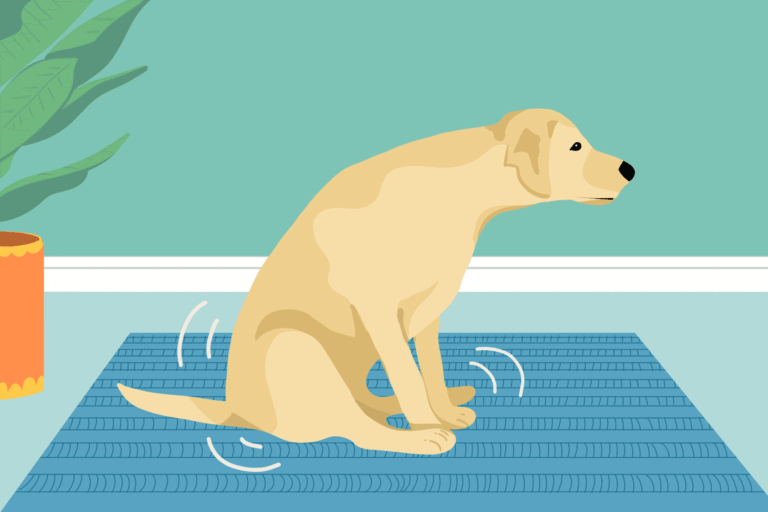Have you noticed your dog dragging its bottom across the floor? It might look funny at first, but dog scooting is usually a sign that something’s bothering your furry friend. Understanding why this happens can help you solve the issue quickly and keep your dog comfortable and healthy.
What Is Scooting?
Scooting refers to when a dog drags its rear end on the floor or carpet. This behavior is often a sign of irritation, itching, or discomfort around the anus or hindquarters.
Common Causes of Dog Scooting
1. Anal Gland Issues
One of the most frequent reasons for scooting is impacted or infected anal glands. Dogs have two small glands near their anus that sometimes don’t empty properly.
Signs include:
- Scooting often
- Licking or biting the rear end
- Foul fishy odor
Solution: Visit a vet or groomer to express the glands manually. In serious cases, antibiotics may be needed.
2. Parasites (Worms)
Tapeworms and other intestinal parasites can cause itchiness and discomfort, leading to scooting.
Look for:
- Small white segments near the anus
- Weight loss or changes in appetite
Solution: Deworming medications prescribed by a vet.
3. Skin Irritation or Allergies
Dogs with food or environmental allergies may experience itchy, inflamed skin near their hindquarters.
Other signs:
- Redness or rash
- Itching other parts of the body
Solution: Identify the allergen and use hypoallergenic diets, medicated shampoos, or antihistamines.
4. Fecal Residue
Sometimes, leftover poop can stick to the fur after defecating — especially in long-haired breeds — causing discomfort.
Solution: Trim the fur around the rear and clean gently with dog wipes.
5. Rectal Prolapse or Tumors
Less commonly, scooting can be a sign of more serious issues like prolapse, infections, or tumors.
Solution: Immediate veterinary attention is required.
When to See a Vet
You should consult a vet if:
- Scooting is frequent or intense
- There’s visible swelling or discharge
- Your dog seems in pain or distressed
- Home remedies don’t help within a day or two
How to Prevent Scooting
- Keep your dog’s anal glands healthy through regular grooming
- Feed a high-fiber diet for better digestion
- Use regular parasite prevention
- Maintain good hygiene around the hindquarters
Final Thoughts
If you’re wondering, “Why is my dog scooting?”, the answer could range from something simple like leftover poop to more serious concerns like anal gland issues or parasites. Regular checkups, a clean rear end, and a watchful eye can help keep your pup comfortable and scoot-free.
Not sure where to go next? Let us guide you:
How Often Should You Bathe Your Dog? A Complete Guide for Pet Parents



1 Comment
Pingback: Why Does My Dog Eat Grass? Should I Be Worried? - barkbuddies.blog